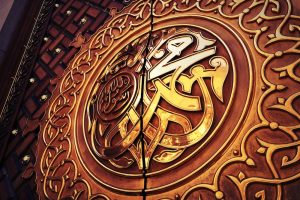
Raziullah Noman, Canada
Many Muslims have the misconception that Ahmadi Muslims do not believe in the five pillars of Islam and the six articles of faith. The unfortunate reality is that these false allegations are often spread by Muslim scholars. Defining the beliefs of Ahmadis, The Promised Messiah and Founder of the Ahmadiyya Muslim Community, Hazrat Mirza Ghulam Ahmad (as) writes:
‘The five pillars on which Islam is based are part of our faith. We hold fast to the Word of God, the Holy Qur’an, to which we are commanded to hold fast. Like Faruq [1] (may Allah be pleased with him), we announce that the Book of Allah suffices us, and like ‘Ayesha (may Allah be pleased with her), when there is a difference between the Qur’an and Hadith, we give priority to the Qur’an. We believe that there is no one worthy of worship except Allah and that our lord and master, Muhammad, the chosen one [peace and blessings of Allah be on him] is His Messenger and is the Seal of Prophets’. We believe in angels, the true nature of resurrection (spiritual resurrection) of the bodies, the Day of Judgement, Heaven and Hell. We believe that whatever the Glorious and Majestic God has stated in the Holy Qur’an and whatever the Holy Prophet [peace and blessings of Allah be on him] has said, is true. We believe that whoever subtracts the smallest particle from the law of Islam or adds to it, or lays the foundation of neglecting obligations and of indifference towards them, is without faith and is turned away from Islam.
I admonish the members of my Community that they should have true faith in the credo that:
لا اله الا الله محمد رسول الله
[There is no god but Allah, Muhammad (sa) is the Messenger of Allah]
and that they should die in this faith. They should believe in all Prophets and all books, the truth of which is affirmed by the Holy Qur’an. They should observe the fast and perform the Salat and pay the Zakat and perform the pilgrimage and carry out all that God Almighty and His Messenger have prescribed and should abstain from all that they have forbidden and thus conform in every respect to Islamic commandments. We consider it our duty to accept all that is supported by the consensus of the righteous ones who have passed away and all that is considered as part of Islam by the consensus of the Ahl-i-Sunnat. We call to witness the heaven and the earth that this is our faith.’ [2]
Hazrat Mirza Ghulam Ahmad (as) instructed all his followers to perform the pilgrimage. He writes:
‘Sincerely observe your fasts for the sake of God. Let everyone who is liable to pay the Zakat do so and anyone upon whom the Hajj has become obligatory and who face no hindrance ought to perform the pilgrimage.’ [3]
Summarizing the beliefs of his Community, the Promised Messiah (as) writes:
‘The faith would only be harmed if I had asked them to follow a new teaching contrary to the teaching of Islam; for instance, if I had declared unlawful that which is lawful or had declared lawful that which is unlawful, or had changed anything in respect of the fundamental doctrines upon which salvation depends, or if I had added anything to or subtracted anything from the prescribed forms of worship, like Fasting or Prayer or Pilgrimage or payment of Zakat. If I had increased the number of Prayers from five to ten or had reduced them to two, or had prescribed Fast for two months instead of one, or had reduced the period to less than a month, that would certainly have done harm and might have amounted to denial of the faith’. [4]
The truth is that according to Ahmadi Muslims, none of the Qur’anic commandments can be abrogated. The Promised Messiah (as) writes:
‘There can be no new divine law. The Holy Qur’an is the last and perfect book, it does not admit of any change, not even of a dot or a mark.’ [5]
He also writes:
‘So beware and do not take a single step contrary to the teaching of God and the guidance of the Qur’an. I tell you truly that anyone who disregards even a small injunction of the seven hundred commandments of the Qur’an, shuts upon himself the door of salvation’. [6]
On one occasion, the Fifth Caliph and Worldwide Head of the Ahmadiyya Muslim Community, His Holiness, Hazrat Mirza Masroor Ahmad (aba) stated:
‘Ahmadi residing in Pakistan cannot go [for Hajj], but the Ahmadis who live outside of Pakistan are able to perform Hajj, as Muslims. Apart from this, the Holy Prophet (sa) himself has stated that as Allah Almighty states, there are some conditions for Hajj, and if those conditions are met; the path is clear, one has the expenses of travel along with various other conditions. If these conditions are met, then one should perform Hajj. Whoever can fulfil those requirements should perform Hajj. Apart from this, so long as there are unjust people ruling in the Saudi government and other Muslim governments they will continue to perpetrate injustices. But we Ahmadis go to Hajj every year.’ [16]
How can a sincere Muslim raise such a false allegation against Ahmadi Muslims despite these clear instructions from the founder of the community? The truth is that we do not differ from the other Muslims when it comes to performing Hajj in Makkah.
It is important to note that some of the famous scholars had to accept that Ahmadi Muslims do perform Hajj and do not differ from other Muslims on this pillar of faith. The most famous Salafi Muslim Muhadith of our day and age, Shaikh al-Albani stated:
هل تظنون أن الطائفة القاديانية هم لا يقولون لا إله إلا الله محمدا رسول الله لا يصلون لا يصومون لا يحجون؟ لا! هُم معنا في هذا كله
‘Do you think the group al-Qadiyaniyyah [7] do not say there is No God but Allah and Muhammad is the Messenger of Allah, they don’t pray, they don’t fast, and they don’t perform Hajj? No! They are with us on all of this’. [8]
He also refutes all of those Muslims who raise the false allegation that we do not perform Hajj in Makkah. Albani states:
يصلون الصلوات الخمس ويحجّون إلى بيت الله الحرام
‘Ahmadi Muslims pray the five prayers and perform Hajj in the Baitullah al-Haram [the Holy Ka`bah]’. [9]
Some raise the allegation that Ahmadi Muslims believe Qadian, India to be greater than Makkah and Madina, God forbid. Regarding this, the Second Caliph of the Ahmadiyya Muslim Community, Hazrat Mirza Bashiruddin Mahmud Ahmad (ra) writes:
‘Makkah Mukarramah and Madinah Munawwarah are greater and superior to all other places, including Qadian. We as the Ahmadiyya Community, have a great deal of reverence in our hearts for these two places, and we sacrifice our own honour for the sake of their honour and will always be ready to do so. I swear by Allah recognising Him as the One and All Powerful, that in this announcement I am not lying.’ [10]
Furthermore, at another instance, Shaikh al-Albani also said:
هؤلاء القاديانيون لا تظنوا أنهم ينكرون شيئا من أركان الإيمان أو شيئا من أركان الإسلام، لا، هم يؤمنون معنا في كل هذه الأركان، فهم يصلّون ويصومون ويحجّون
‘They are the al-Qadiyaniyya. Do not think that they reject anything from the pillars of faith or anything from the pillars of Islam. No. They believe in all of the pillars as we believe. They pray, they fast, and they perform the pilgrimage’. [11]
He also stated:
بينما القاديانية يصومون ويحجّون ويصلّون، كل شيء يفعلوه مثل أهل السنة والجماعة
‘While the Qadianis fast, perform pilgrimage, and pray. They do everything like Ahlus-Sunnah wal Jamaah’. [12]
The leader of Deobandis, Ashraf Ali Thanvi also accepted that Ahmadi Muslims only differ on an aspect of Prophethood. Apart from that, we do not differ in other aspects of Islam. Once one of his followers came and said what is it with the Ahmadi Muslims, who do not believe in Allah nor the Prophet Muhammad (sa). It is then written:
حضرت نے معا لہجہ بدل کر ارشاد فرمایا کہ “یہ زیادتی ہے، توحید میں ہمارا ان کا کوئی اختلاف نہیں۔ اختلاف رسالت میں ہے اور اس کے بھی صرف ایک باب میں
‘Ashraf Ali Thanvi changed his tone and stated, ‘This is unjust. We do not differ with them on the Oneness of God. The difference is on Messenger-ship and that too only one aspect of it’’. [13]
Dr Israr Ahmad also stated:
‘Allama Iqbal went as far to say that if anyone wants to see the true Islam, he should go to Qadian. Why? Because it was organized and established. There was allegiance to one person. There was discipline. The entire atmosphere was based on the Islamic teachings’. [14]
Mufti Taqi Usmani, one of the most respected scholars of today stated in the English language:
‘They pray like we pray. They make the Azaan like we make Azaan [call to prayer]. They hold fasts in Ramadhan as we hold fasts in Ramadhan. They pay Zakat as we pay zakat. And if they are allowed, they can perform Hajj although they are not allowed in Saudi Arabia to enter. But, if they are allowed, they will perform Hajj as we perform Hajj’. [15]
The truth is that every Ahmadi Muslim desires to perform the pilgrimage. However, sadly because of persecution and being considered by much of the Muslim world as disbelievers, many Ahmadis are unable to do so. It is the desire of every Ahmadi Muslim to perform Hajj and many perform it on a yearly basis. On another occasion, His Holiness, Hazrat Mirza Masroor Ahmad (aba) said:
‘If a person is known to be an Ahmadi, they are told that they are a disbeliever and they are not allowed [enter Makkah]. This is despite the fact that we are Muslims; as the Holy Prophet (sa) has stated, anyone who declares ‘there is no god but Allah, Muhammad (sa) is His Messenger’ is a Muslim. In fact, the Holy Prophet (sa) also said that that a person who just declares ‘there is no god but Allah’ is also a Muslim. We declare ‘there is no god but Allah, Muhammad (sa) is His Messenger’ yet people still label us as disbelievers. The government there treats us unjustly and does not allow us to go if they find out that a person is an Ahmadi. Despite this, however, there are many Ahmadis who go [to Makkah] and perform Hajj as well as Umrah. Many people have started going now, including many people from the UK. I also had an Ahmadi perform Hajj on my behalf seeing as I cannot go. If one is permitted to go then they should go. Although there is not full freedom, Ahmadis still go to perform Hajj, so long as no one finds out they are Ahmadi otherwise they will be beaten there and thrown out. Hence they commit a grave injustice by not allowing Ahmadis to go and Ahmadis are not given their due rights.’ [17]
As those who love God and love his Messenger, Ahmadi Muslims yearn to visit Makkah, the birthplace of Islam and perform the Hajj as prescribed for all Muslims. This sentiment was perhaps held most by The Promised Messiah (as). It is narrated:
‘One day the Promised Messiah (as) was feeling unwell and was lying down on his bed. The Promised Messiah’s (as) wife, Hazrat Amma Jaan (ra) and her father, the late Mir Nasir Nawwab were sitting in the house talking to one another. When the topic of Hajj (Pilgrimage to Makkah) came up, Hazrat Mir Nawwab said, ‘these days the journey for Hajj has become very easy, people should go to Hajj’. The Promised Messiah (as) was listening to this discussion. The Promised Messiah (as) began to think of the Ka’bah (i.e. the House of God in Makkah – a cube shaped building), and the grave of the Holy Prophet (sa) (in Madinah). Due to his immense love his eyes began to flow with tears. The Promised Messiah’s (as) extreme desire to perform Hajj revealed itself and as tears flowed from his heart he would wipe them. He addressed Hazrat Mir Nawwab and said only: ‘This is true and it is our heart-felt desire as well, but I think to myself, will I ever be able to see the grave of the Holy Prophet (sa)?’ [18]
Hence, it is the heartfelt desire, and effort where possible of every Ahmadi Muslim, to perform Hajj, as prescribed for all Muslims.
ENDNOTES
[1] Hazrat Umar Farooq (ra), the Second Caliph of Islam
[2] Ayyam-us-Sulah, Ruhani Khazain, vol. 14, p. 323
[3] Noah’s Ark, p. 25
[4] Izala-e-Auham, Ruhani Khazain, vol. 3, p. 187
[5] Lecture Ludhiana, p. 44
[6] Noah’s Ark, p. 42
[7] The term used by opponents to describe Ahmadis, as the Community was founded in Qadian
[8] Silsilatul Hida wal-Nur, #742
[9] The Recorded Tapes of Albani, #91
[10] Anwar ul Uloom, Vol 14, Majlis Ahrar Ka Mubahila Kai Mutali Na Pasandeedah Ravaya, Page 33
[11] Silsilatul Hida wal-Nur, #705
[12] Silsilatul Hida wal-Nur, #634
[13] Sachi Batain, Nafis Academy, p. 213
[14] https://youtu.be/-OQmInPSdn8
[15] https://www.youtube.com/watch?v=U56c0EzMXX8
[16] Gulshan-e-Waqf-e-Nau 8thDecember 2013
[17] https://www.youtube.com/watch?v=_MNnHi9tQ68
[18] Tehrirat-e-Mubarak, p. 155-156




Add Comment